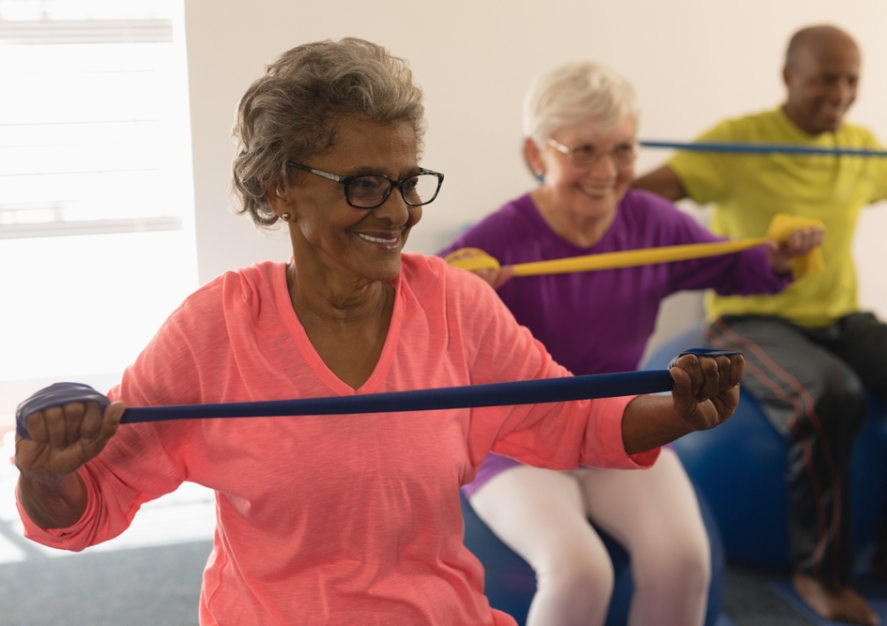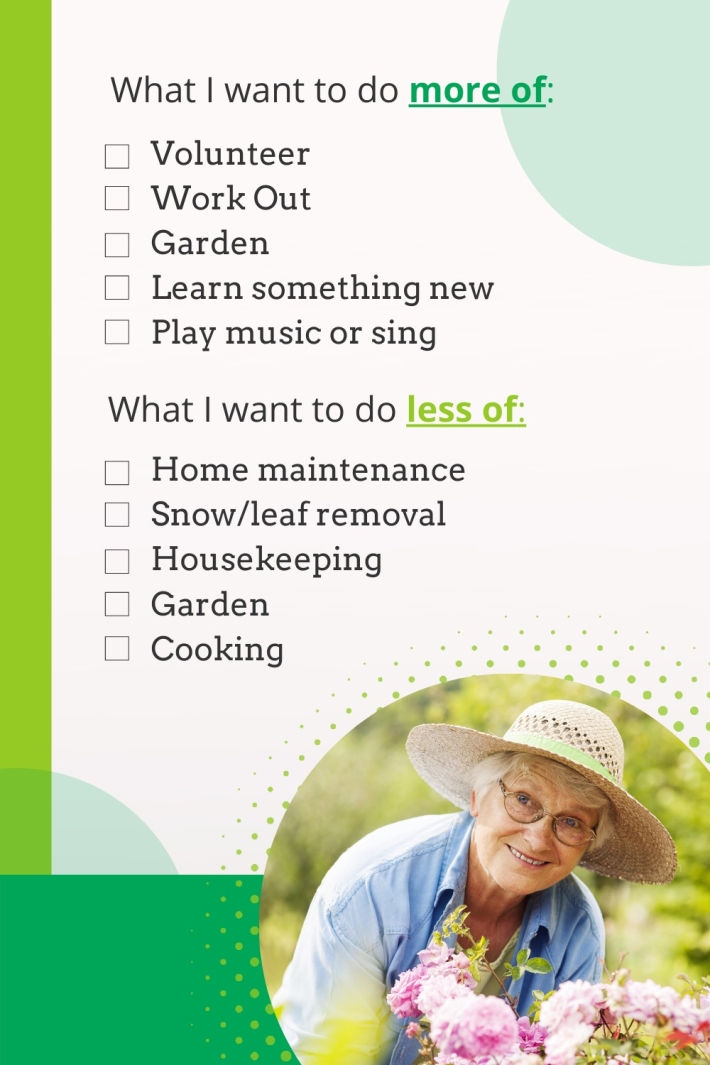Top 4 Signs You're Ready for Independent Living
Have you been thinking about moving to independent living but aren't sure if it's the right time? Read about signs that might tell you you're ready!

Explore:
Interested in moving to independent living? It’s a type of senior living designed exclusively for older adults ages 55 and up. You’d reside in a comfortable maintenance-free residence, with senior living amenities such as a swimming pool, fitness center and dining steps away from your door. Certain senior living communities known as Life Plan Communities (also called CCRCs or continuing care retirement communities) also provide access to care on-site so you don’t have to move elsewhere if your health changes with age.
Independent living arrangements can make your life easier, prolong your health and vitality, and grow your social circle — all wonderful advantages. But is independent living right for you? Here are four signs it might be a smart move.

You’re tired of looking after a house.
We take pride in the appearance of our homes, but chores, maintenance and costs can become a burden. Yards require regular mowing and seasonal cleanup. Rooms, even rarely used, need dusting and vacuuming. Chores that were once easy — climbing up and down a ladder, moving and raking mulch, mopping floors — become more tiring and backbreaking. Additionally, most suburban homes are not built with seniors in mind. Stairs, basements, kitchens and bathrooms frequently become more challenging or hazardous to use.
Some of these obstacles can be alleviated by family members or paying for help. Remodeling a home to incorporate safety and convenience features is also always an option, but it can get expensive. Living in a place that’s sized right for you, where you don’t have to plan and carry out maintenance, will give you more freedom and flexibility in the long run.
You’ve been thinking about your health.
You may be in good health right now or have a health condition that will affect your ability to stay active. In either case, it makes sense to think about your current and future health needs. You should also have a plan in case of a medical emergency or an accident like a fall. Consider who would help you with activities of daily living such as showering, toilet routines or preparing meals if something happens. If you’re living with a partner or spouse, it’s also wise to think about the care they might need.
According to the U.S. Department of Health and Human Services, someone turning age 65 today has almost a 70% chance of needing some type of long-term care in their lifetime. It’s one of the reasons more retired seniors are choosing senior living communities with health services on-site. Residents and their family members can rest easy knowing both emergency support and long-term care are there if ever needed. Moving to independent living when a senior is still active provides a safety net without the stress of an illness or health crisis forcing the situation.
You feel lonely.
Planning for retirement socially is as important as planning for it financially. Many older adults find their social circles narrow after leaving paid employment. And loneliness can set in after the death of a spouse, or after family and friends move away. Mobility issues or trouble driving can compound this, making it difficult to get out of the house.
The impacts of social isolation and loneliness have been compared to those of smoking or obesity. Lack of social connections affects our physical and mental health and can significantly increase the risk of serious health issues and early death. Many seniors feel embarrassed to admit to feelings of loneliness and don’t know what to do about them. Independent living provides seamless ways to meet people and make friends. Events, activities, clubs, and having neighbors the same age offer enriching opportunities to socialize and get more out of life.
You’re worried about driving.
It’s normal for driving abilities to change as we get older. Our eyesight and hearing may not be as sharp as they once were, affecting our reflexes and coordination. Health conditions that diminish leg or arm strength, cause neck pain or stiffness, cause us to tire easily, or affect our reaction times can also affect our driving ability. Most seniors adapt by using safe driving practices and reducing risk factors to continue driving safely for many years.
If you’re finding yourself less comfortable with driving, you may be relying more and more on favors from friends, or on public transportation. This makes it harder to get around to do the things you need to do or continue activities you enjoy. Independent living offers regular transportation to shops, recreation and entertainment, allowing you to travel without the hassle of driving, traffic and parking. It may even enable you to eventually go without a car and not suffer a loss of independence.
When is the right time for independent living?
While these four are among the most common, there are many other reasons for considering independent senior living. Perhaps you’re ready to travel more, and you like the idea of locking up and leaving without having to worry about the security of your home. Or you’d like to work on your fitness more regularly, in a structured environment that caters to seniors. Some seniors are simply tired of cooking for themselves and eating alone. Active older adults at all stages of life discover a variety of personal benefits from the lifestyle independent living provides.
Try this quick online assessment to find out whether independent living might be the right choice for you. The assessment takes about four minutes. You’ll get a personalized score highlighting any care concerns and the best senior living options for you.
Where You Live Matters is powered by the American Seniors Housing Association (ASHA), a respected voice in the senior housing industry. ASHA primarily focuses on legislative and regulatory advocacy, research, and educational opportunities and networking for senior living executives, so they can better understand the needs of older adults across the country.
